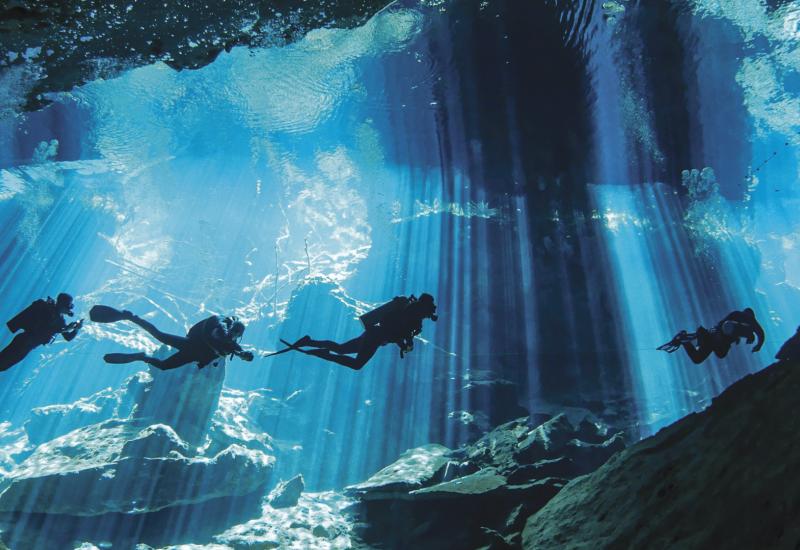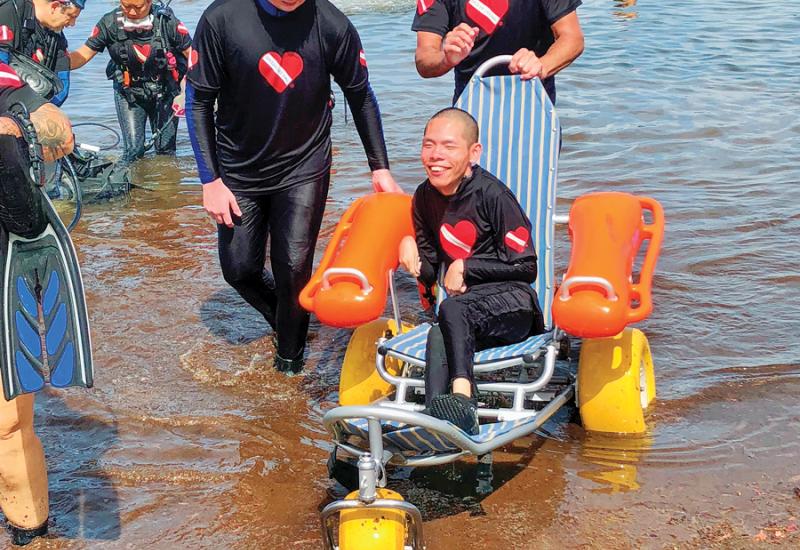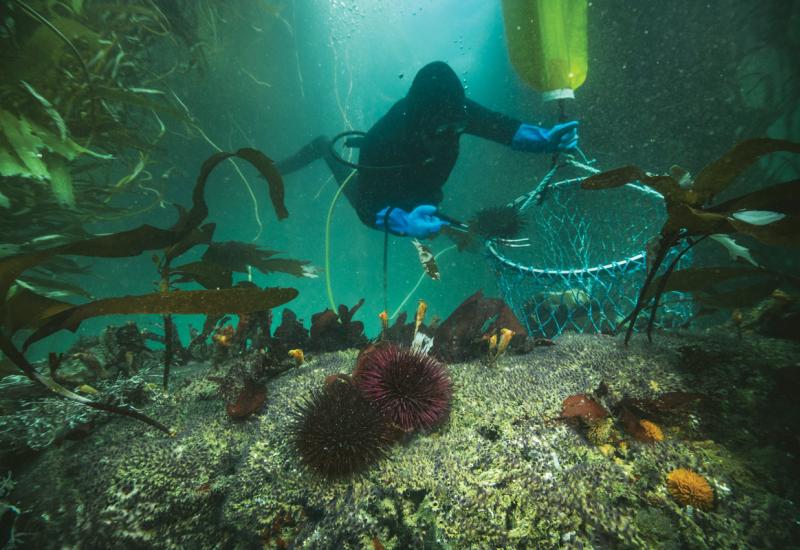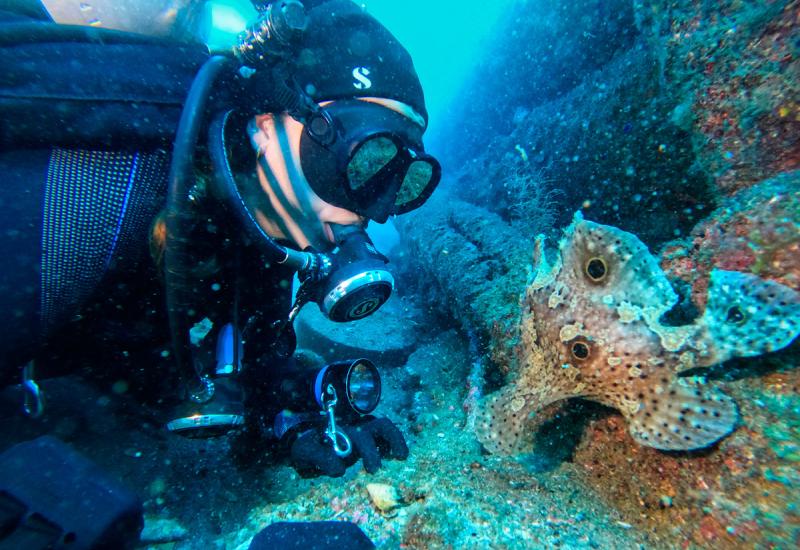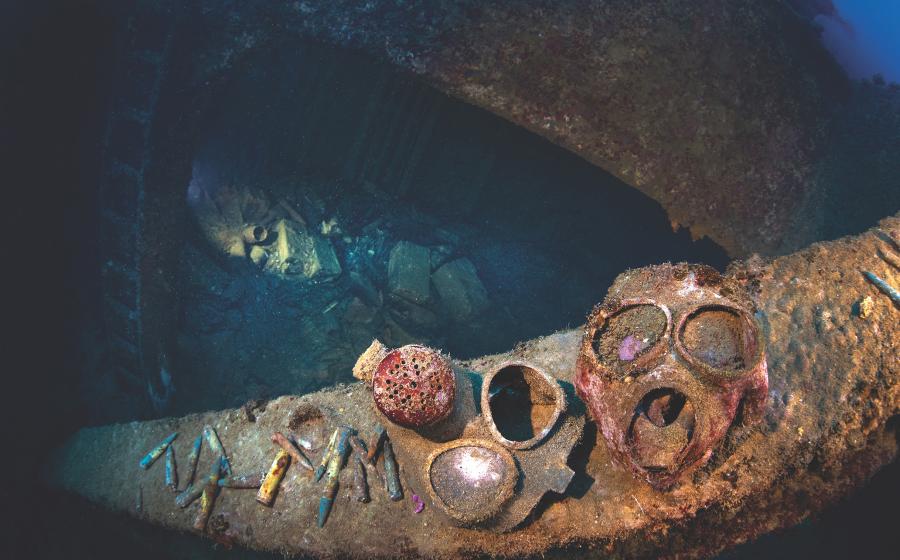The Path to Becoming an ROV Pilot
The diving world is filled with people who have carved out unique careers for themselves as divers. Find out from the divers themselves what it takes to work in their corner of the dive industry.
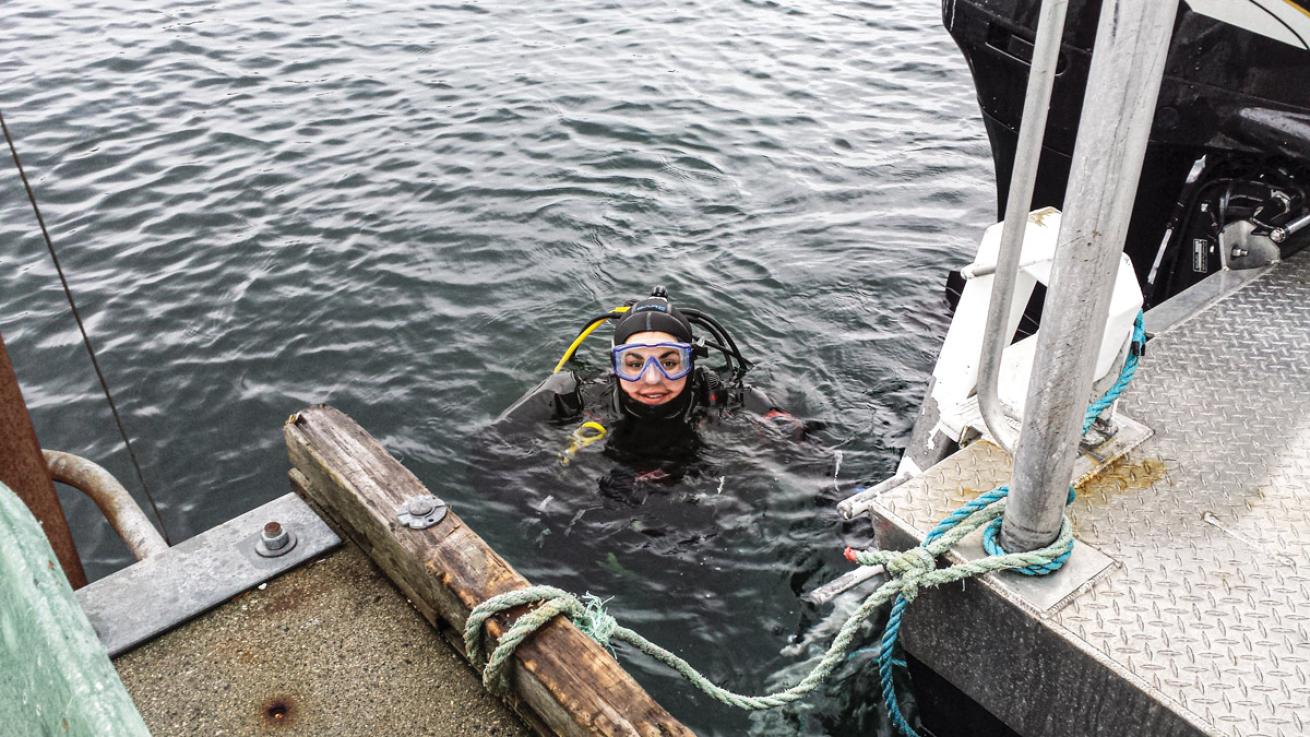
Courtesy Kate KulrichKulrich conducts in-water training exercises in British Columbi.
Kate Kulrich grew up about as far from the ocean as one can get in Canada, in a tiny Saskatchewan town called Leader, with fewer than 900 residents.
“We had a pool that was open only two months a year, and my sister was the summer coordinator for kids’ programs,” Kulrich says.
“One year, a discover scuba program came from Saskatoon, and my sister asked if I wanted to try—that first moment in the water, I had an indescribable feeling that this was what I was meant to do.”
Today, Kulrich not only works as a commercial scuba diver, but she’s also a pilot, technician and support diver for remotely operated vehicles (ROVs). In recent years, ROVs have become a mainstay among commercial and academic underwater work.
Related Reading: What It’s Like to Pilot a Self-Propelled Cage Among Great Whites
Even in working situations that require human divers, ROVs are valuable tools for a wide range of tasks, from inspecting underwater structures and conducting search and recovery operations to collecting samples and artifacts.
Kulrich’s path to working with ROVs started with a passion for diving.
“I did all my recreational dive classes, and then I decided to continue on with my commercial dive tickets,” she explains. “After my dive training, I moved to Australia to study underwater archeology.”
It quickly became clear to her that the commercial dive industry had a need for people with the expertise to pilot, maintain and work underwater alongside remote submersibles.
“ROVs are exceptional tools that can range in size from very big to very small and can be adapted with many different tools and programs,” she says. “I got training for many aspects of these jobs—whether being the archaeologist, pilot, technician, master diver or developing software for the ROVs—to be as useful as I can be.”
In the 10 years since she started her commercial dive training, Kulrich has worked as a contract pilot and diver on numerous projects around the world, from subsea oil and gas work in the frigid North Atlantic to underwater archeology in the Caribbean.
“The most fun project I worked on was surveying and collecting artifacts from the seafloor off the island of St. Eustatius,” she says.
“Many colonial-era vessels were sunk by hurricanes in the area, and I was contracted to assess those vessels, map the sites and find artifacts. When you see something like a cannon that no one has seen for centuries, it’s unreal.”
Kulrich says many commercial divers today worry that ROVs may replace human divers in the water, but from her perspective, the use of ROVs only enhances what divers can do.
Related Reading: What is a PADI Adaptive Support Diver Certification?
She says aspiring commercial divers can find a lucrative and exciting career by learning to work with ROVs.
“ROV pilots are in high demand, and there are always jobs available across a number of industries, whether you’re working as a contractor or in a staff position,” she says.
“The best place to start is by researching where and how you’d like to implement yourself into the industry. I’d highly recommend developing a background in either electronics, mechanics or hydraulics along with commercial diving and ROV pilot training.”
It’s also important to consider whether this type of work would be a good fit for you and your family’s lifestyle, as many projects take place far offshore and have contracts for up to six months at a time.
Job Requirements
Degree: Trade school or college education in electronics, mechanics or hydraulics.
Salary: Contract commercial diver: $600 to $900 per day, or salary of $60,000 to $100,000 per year; ROV pilot/technician: $75,000 to $110,000 per year.
Certifications: Commercial diving, ROV pilot and/or technician.

